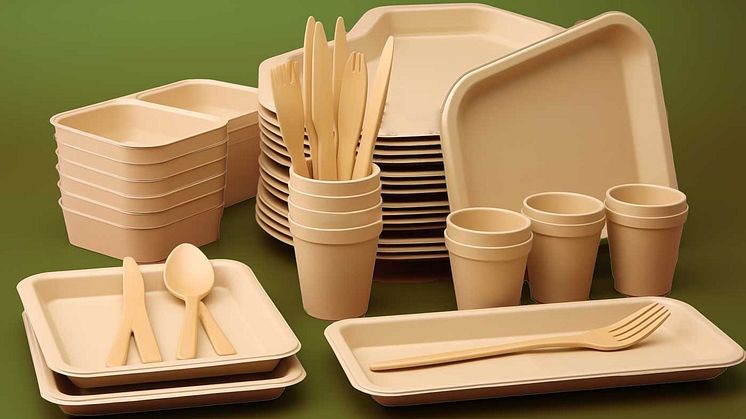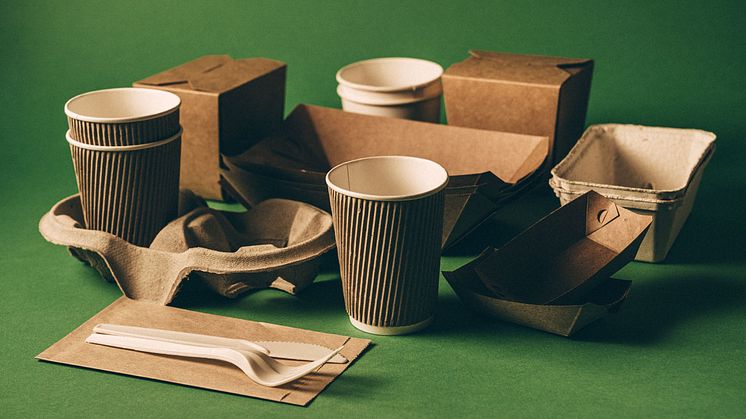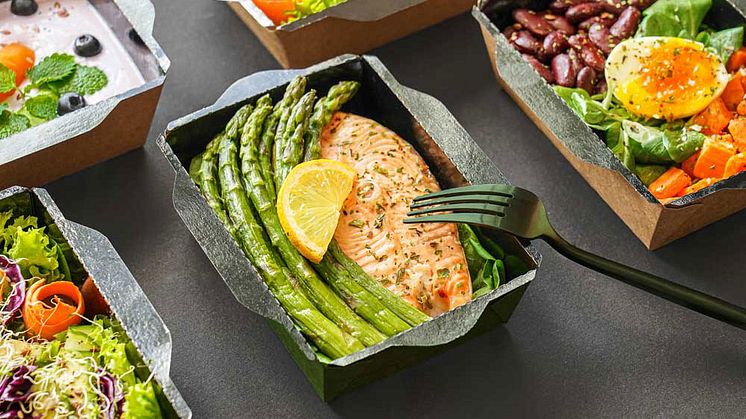
Press release -
Study Confirms - Gluten Risk from Biodegradable Food Contact Materials
New research from the Technical University of Munich confirms that gluten can migrate from certain biodegradable food contact materials (FCMs) into gluten-free foods, posing a significant risk for individuals with coeliac disease. The study measured gluten levels as high as 203 mg/L in previously gluten-free liquids when exposed to bran-based plates—far exceeding the recommended safe limit of 20 ppm for coeliacs.
Gluten Levels Exceed Safe Limits by Up to Ten Times
Among the FCMs tested, wheat bran-based plates were found to have the highest potential for gluten migration. The study detected up to 203 mg/L of gluten in deionized water after just 30 minutes of contact. Other materials, such as straws made from durum wheat semolina and plates made from wheat bran, were also shown to release significant amounts of gluten, posing risks to those with coeliac disease or wheat allergies. In contrast, cutlery composed of 90% polylactic acid and wheat bran, as well as straws made from rye stalks, demonstrated negligible or no detectable gluten migration.
Need for Increased Awareness among Coeliacs
Leading the study published on May 15, 2024, were Prof. Dr. Katharina Scherf from the Technical University of Munich, a member of the Prolamin Working Group, and Research Assistant Johanna Mossburger from the Karlsruhe Institute of Technology. They emphasize the critical need to raise awareness about the risk of gluten migration from certain FCMs, enabling coeliac patients to make informed choices and avoid gluten-based materials.
Legislative Gaps Highlighted
Currently, EU regulations do not mandate allergen labeling on biodegradable FCMs, posing a hidden danger for individuals with coeliac disease and wheat allergies. The study's authors are calling for urgent legislative changes to require clear allergen labeling on these materials.
Coeliacs Advised to Avoid Cereal-Based FCMs
Until further research clarifies which FCMs pose a risk, coeliac patients are advised to avoid cereal-based FCMs and exercise caution, particularly when dining out or traveling. ”We welcome this study that confirms previous studies conducted by AOECS members and can help raise awareness and inform upcoming legislation both at National and European level so that people with coeliac disease can enjoy their food safely” – says Veronica Rubio, AOECS Secretary General, commenting on this research.
Further Research Required
The study suggests that more research is needed to confirm these findings across a wider range of foods and FCMs and to understand the conditions that influence gluten migration. The German study was supported by the Deutsche Zöliakie-Gesellschaft e.V. (German Coeliac Society), with Open Access funding provided through Projekt DEAL.
Related links
Topics
Categories
Celiac disease (or coeliac disease) is an autoimmune disease where cereals containing gluten trigger an inflammatory reaction in the small intestine. Around 100 million people are estimated to suffer from celiac disease globally. Approximately only 25% of those have received a diagnosis, the rest are either unaware of their condition or suffer from various related ailments. Left untreated the disease causes severely reduced quality of life and increased risk of premature death.
The Association of European Coeliac Societies (AOECS) is an independent, non-profit organization working for early detection of celiac disease and a better life for people suffering from this condition. AOECS represents over 40 national coeliac societies from 34 European countries and beyond on an international stage.



